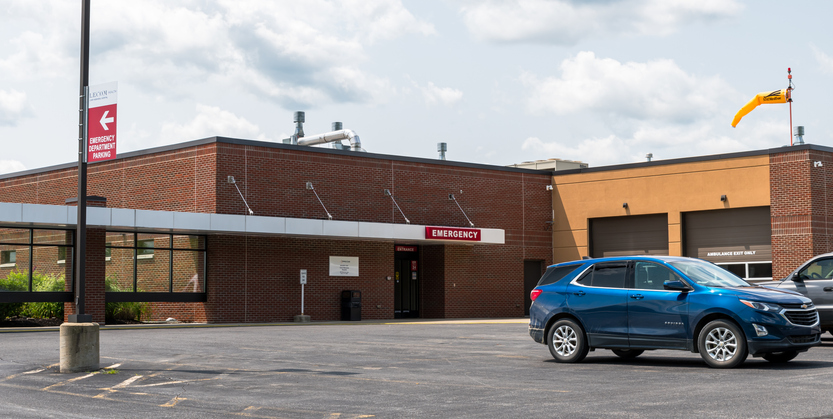The Kansas Legislature is on track to have more Medicaid expansion proponents in the 2017 session than in 2016, although Gov. Sam Brownback (R) appears no likelier to sign legislation expanding the program.
Expansion supporters won at least 15 primary election contests against candidates for the state’s House of Representatives who opposed expanding KanCare, the state’s Medicaid program, and moderate Republicans ousted six conservative state senators, KHI News Service reported after the August 2 primary.
Expansion opponents could also lose seats in the general election, giving pro-expansion Democrats a larger bloc as well.
Brownback has resisted accepting federal money to expand Medicaid. In his State of the State speech in January, Brownback said, “It was Obamacare that caused the problem. We should not expand Obamacare to solve the problem.”
Melika Willoughby, Brownback’s deputy communications director, called Medicaid expansion “morally reprehensible” in an October 2015 memo.
Governor’s Three Conditions
Eileen Hawley, communications director and press secretary for Brownback, says the governor will consider cost-effective Medicaid proposals that extend care to Kansas’ underserved disabled population and require newly eligible recipients to work.
“The governor has set forward three conditions that have to be met before considering expansion,” Hawley told Health Care News. “Any expansion must be fiscally sustainable, include a work requirement, and first address the needs of the most vulnerable Kansans who are on a wait list for services.”
Some families caring for disabled or developmentally delayed individuals have waited more than seven years for financial assistance from KanCare, The Wichita Eagle reported in March.
Hawley says lawmakers should serve these Kansans before extending state-sponsored health care to the able-bodied.
“The governor believes the citizens of Kansas would be better served by working to eliminate the waiting lists for disabled Kansans and working to improve KanCare as the managed care organization contracts go back out to bid this fall,” Hawley said.
Hard Work for Lawmakers
James Franko, vice president and policy director at the Kansas Policy Institute, says lawmakers are unlikely to produce legislation meeting Brownback’s conditions.
“I don’t question Gov. Brownback’s statement,” Franko said. “I question the reality of those requirements being met.”
Kansas state lawmakers have a history of declining opportunities to make government more cost-effective, a problem Medicaid expansion would exacerbate, Franko says.
“Kansas’ financial problems are the result of not matching spending to revenue,” Franko said. “Taxes were rightly cut in 2012, but our elected officials never did the hard work of making government operate more efficiently to lower spending. Of course, expanding Medicaid would make this problem worse.”
Expansion Raises Costs, Risks
Expanding Medicaid under the Affordable Care Act (ACA) would make an additional 150,000 able-bodied adults eligible for KanCare.
Hawley says even without expansion, ACA has increased KanCare costs, and with them, the potential for fraud and waste.
“Federal mandates and the ACA added $98 million of Medicaid costs to the state budget in fiscal year 2016,” Hawley said. “Medicaid has a long history of fraud, waste, and abuse, which the state has actively fought to limit and reduce. Any expansion will necessarily increase these risks.”
Even hybrid, supposedly market-based versions of Medicaid expansion in other states have failed to produce innovative and sustainable programs, Franko said.
“We’ve seen the feds approve fig-leaf-type expansion ‘reforms’ at the state level, but nothing truly innovative,” Franko said. “What’s more, how could something be fiscally sustainable when the Obama administration has already acknowledged that Medicaid reimbursement rates must decline over time?”
Dustin Siggins ([email protected]) writes from Washington, DC.
Internet Info:
Dustin Siggins and Michael Hamilton, “Medicaid Expansion Is Still ‘Not in Kansas,’” Health Care News, The Heartland Institute, April 2016.
Michael Hamilton, “Post-Op Policy Debrief: ‘Nontraditional’ Medicaid Expansion,” Health Care News, The Heartland Institute, April 2016.
Michael Bates, “Kansas Lawmakers Approve Welfare-to-Work Reforms,” Budget & Tax News, The Heartland Institute, April 11, 2016.
Jonathan Ingram and Nicholas Horton, “The Power of Work: How Kansas’ Welfare Reform Is Lifting Americans Out of Poverty,” Foundation for Government Accountability, February 16, 2016.



